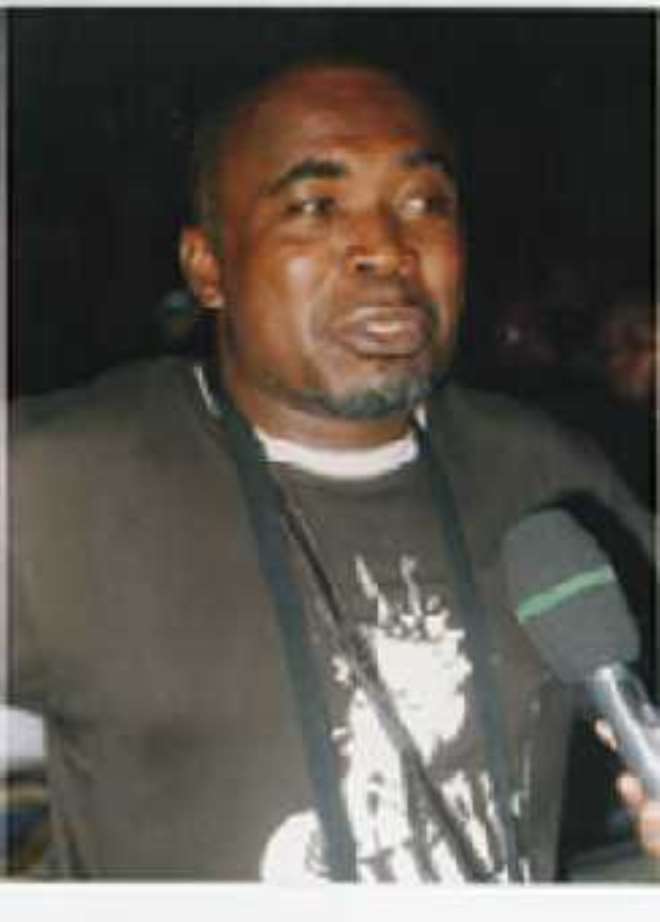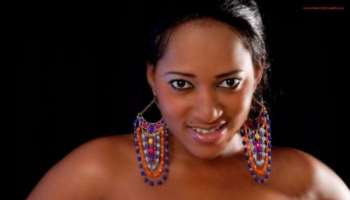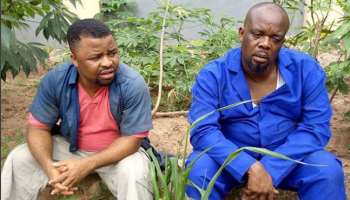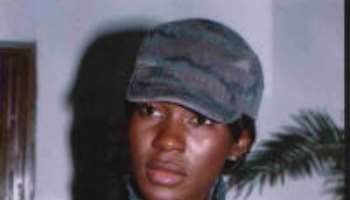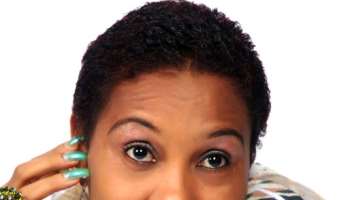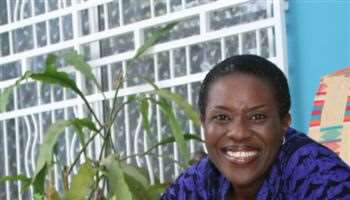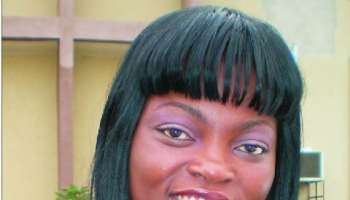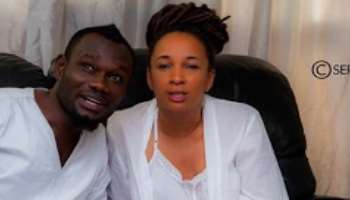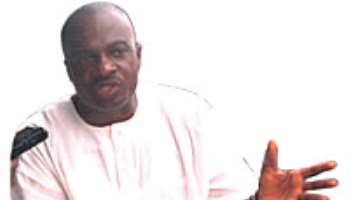Nigerian Actors Shoot Movie On Love, and Controversy
A crew of Nigerian actors, directors and cameramen are in Cameroon, precisely in Buea, Southwest Province, to shoot a movie that adumbrates love, hatred and land controversy. Zach Orji, one of the actors, tells The Post in this exclusive interview that they use the movie industry to mirror themselves and society.
Orji hopes the message in the film, which is sponsored by a Cameroonian, will prick the authorities of both Cameroon and Nigeria. He spoke to The Post's Walter Wilson Nana.
The Post: What brings you to Cameroon?
We are here to shoot a film in collaboration with our Cameroonian colleagues. The film is funded by a Cameroonian. We are happy about it. It gives us the opportunity to get together as neighbours, as brothers and sisters and do something together, which we believe will benefit us (Cameroon and Nigeria). We also believe that it will make us better than we are.
Zach Orji: What are some of your international experiences?
We have done this kind of collaborative work in other countries; Ghana, Sierra Leone, South Africa, Congo-Kin, USA and UK. I am happy to be here in Cameroon.
We hear you are a "son of the soil" as we say in Cameroon?
I am not a stranger in Cameroon. I did part of my primary and secondary education here.
Where was that?
Here in Buea!
The name of the school?
My parents brought us here when I was nine. I finished primary school at Saint Anthony Catholic School in Buea Town. In a manner of speaking, I am back home. Subsequently, my father decided that one of his four children would study French. So, I went to Ecole Francophone De Buea, where I spent four years and had my Certificat d'Etude Primaire. I moved to Collège King Akwa, Douala, where I did my secondary school. Then, we travelled to Nigeria, where I completed and went on to University of Nigeria. There, I read Estate Management. While we were in Cameroon, my elder and younger brothers studied at Bishop Rogan College, Small Soppo, Buea. My elder sister studied at Queen of the Rosary College, Okoyong, Mamfe. Having lived in Buea, where the weather is great, I am coming back like a home boy.
Did you influence the coming of the project to Buea by any chance?
No! Let us say my having been here influenced my coming. When they thought about this project, the writer, who is also a member of the Nigerian Directors' Guild, a friend and colleague, thought about me immediately because he knew about my roots in Cameroon. Hence, he and the Director of the project, Fred Amata, called me up and I did not hesitate.
Tell us more about the film you are currently shooting?
Usually, we use working titles. For some reasons, we do not divulge these titles until the film is shot, until the Director, Producer, Executive Producer actually decide what name they want to give to the film. The one we are currently working on talks about love, hatred and land controversy.
Precisely, what is the storyline?
It is about two families; the Fungangs and Enonchongs, who are enemies to the point that Mr. Fungang actually brings out his gun and shot Mr. Enonchong, and has him wounded. Now, it happens that their two children; Chief Enonchong's son fell in love with Fungang's daughter. And the two children do not care about the enmity between their parents. They have decided to go ahead and get married. Now, we have diametrically opposed feelings - love and hatred. The two fathers are totally against the union of their children but the children go ahead and even decide that they can even marry without the consent of their parents. Their enmity dates back before the children were even born during the epoch of their grandparents. This grudge, they have carried from one generation to another and now, it is affecting their children.
So, what is the message?
Bitterness and hatred against people do not pay. They can only set you back. It does not edify. But love heals. Love should be able to transcend feelings of hatred and unforgiveness. You can draw an analogy of the relationship between our two countries; Nigeria and Cameroon, who are brothers, neighbours, in-laws, cultural ties that cannot be broken by any kind of bone of contention between them. Now, the ties between us should transcend our bone of contention. That is what we are saying.
Do you have the feeling the storyline of your movie will impact on the authorities of the two countries?
Our job as film makers is to present a mirror, where we see ourselves and begin to ask ourselves questions; what is happening? It is not an overnight thing. The film may not heal all the wounds or solve all the problems. But it is a process that we are putting in place. And we intend to continue hitting until we reach the utopic world that we are trying to show our people. We are showing ourselves the mirror of ourselves. This is who we are. We should think about it and begin to tackle it.
How many actors came from Nigeria to be part of the movie?
We have Olu Jacobs, who is one of the most respected actors in Nigeria. Fred Amata, who comes from a movie family. He is the director and a performer in the film. Emmanuel Ayalogo, actor, director and prolific writer. There is also Dakoré Egbesung, who is one of our prominent actresses in Nigeria. We have a crew of cameramen, sound technicians, production coordinator and continuity from Nigeria. The rest are from Cameroon.
How do you explain the boom in the Nigerian movie industry?
The Nigerian movie industry has become a phenomenon. Nigeria produces more films than any other African country. We also produce commercial films that we take to festivals. We produce more of commercial films that treat themes on the culture, tradition and value systems of the people. We get into situational things that happen in our country, which we believe also happen across Africa. We are delving into themes that touch the heart of Africa (ns). Hence, our films are watched all over Africa, US, UK, Germany, Holland, Fiji Island, New Zealand and Australia. In different countries we have worked in, we have had testimonies from people who have watched our movies. It makes you feel good that people who are not even your own compatriots are appreciating your works.
How much of financial resources have been put into the current project?
I do not know. I cannot tell you. Every movie has a budget. But this one is a big project.
How long will the project last?
I cannot say. But I know we are supposed to stay for two weeks here.
The Cameroon of today, is it the same Cameroon you left some years ago?
I really cannot answer that now. I have not had time to go around. But Buea is not as cold as it used to be. It was colder when we lived here. But the weather is still very good. I have not sweated since I came. Lagos is very hot! I live in Lagos. It is hot out there! Buea is blessed with a fantastic weather.
Are you married? Any Kid (s)?
I am married. My wife is an actress too. Concurrently, my wife and the wives of Olu Jacobs and some other people are in Enugu taking part in another film. I have three kids - a boy, 14 and two girls. Despite our tight schedules, we endeavour to give them parental love. When we are working in Nigeria, we take them to locations. I keep in touch with home.
To the Cameroonian movie industry, what prescription(s)?
You have to have the hunger for anything to succeed in it. You are possessed of initiative and you are ready to work hard. It is not falling that matters. It is falling and not getting up that is regrettable. The zeal has to be there. It is a very rough road.
Let's know you better?
My name is Zach Orji. I am a Nigerian actor, producer and film director. I am a member of these three bodies back home in Nigeria and President of the Actors' Guild in Nigeria. I am a member of the Association of Movie Producers and Directors' Guild of Nigeria.
Click here for more information on Zach Orji
Latest News
-
 Actress Biodun Okeowo Celebrates Lege Miami On His
Actress Biodun Okeowo Celebrates Lege Miami On His -
 Davido's 'With You' Ft Omah Lay Official Video Hi
Davido's 'With You' Ft Omah Lay Official Video Hi -
 "I'm Ready For My Next Husband" - Ka3na Reveals
"I'm Ready For My Next Husband" - Ka3na Reveals -
 "I Humbly Suggest You Bring Back The Cashless Poli
"I Humbly Suggest You Bring Back The Cashless Poli -
 Yul Reacts To Photo Of New Born Daughter Being Use
Yul Reacts To Photo Of New Born Daughter Being Use -
 Burna Boy Reveals That He Is Considering Having Ki
Burna Boy Reveals That He Is Considering Having Ki -
 "Nollywood's Growth Requires Sacrifices From Curre
"Nollywood's Growth Requires Sacrifices From Curre -
 "Everyday With You Is A Blessing" - D'banj Celebra
"Everyday With You Is A Blessing" - D'banj Celebra -
 Nkechi Blessing Flaunts New Man On Social Media, D
Nkechi Blessing Flaunts New Man On Social Media, D -
 Yhemolee Celebrates Son As He Clocks Six Months
Yhemolee Celebrates Son As He Clocks Six Months


